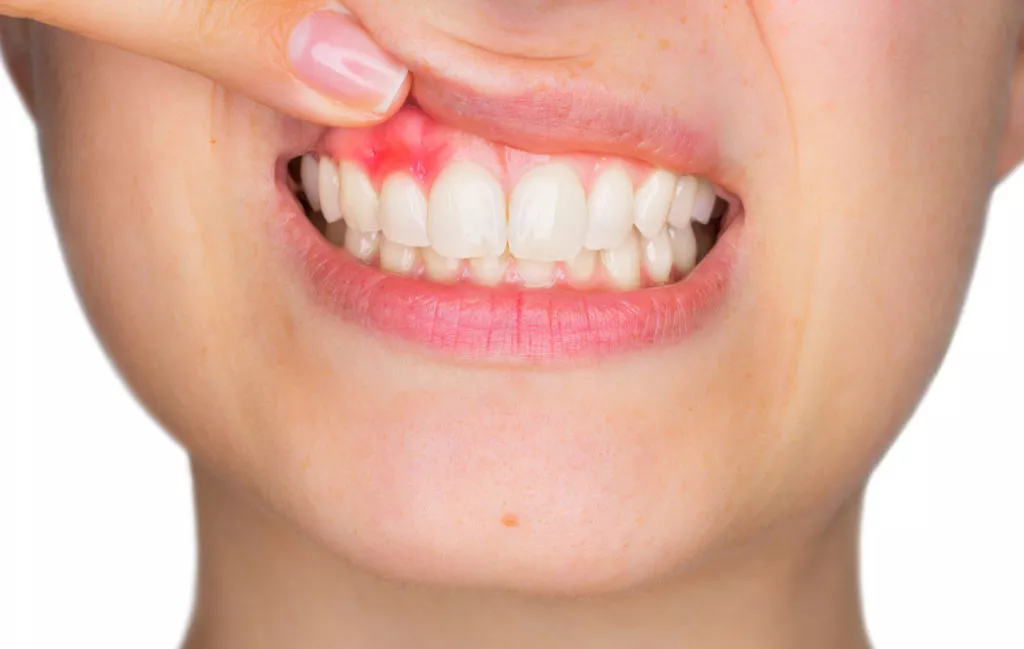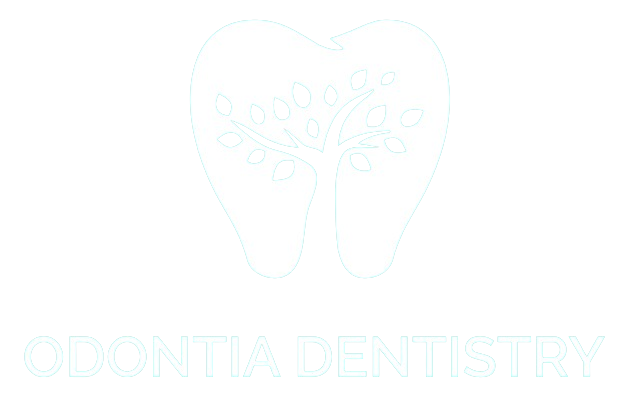Odontia Dentistry – where dental care meets excellence!

Gum treatment:
At Odontia, there are a number of treatments available for gum disease sufferers, each of which varies depending on the severity of the condition. In order to determine the treatment modality that best meets your needs, we will evaluate the extent of the damage caused by gum disease.
Your teeth are held in its place by bone which is surrounded by gums. Therefore the health of this gums and bone is of paramount importance in maintenance of oral health and dentition. Any disease affecting the gums can compromise oral health and if left unattended can result in loss of support and loosening of teeth.
Types of gum treatment
The gum specialist examines the teeth and gums clinically and bone levels with help of x-rays before deciding on the treatment plan.
The dentist may then, perform one or more of the below mentioned procedures to help in eliminating the gum disease and strengthening teeth.
Regular and effective oral hygiene maintenance and periodic dental visits can help in preventing or eliminating gum disease.
Presence of gum disease is known to increase the risk factors for conditions like heart attack, endocarditis and stroke. Presence of gum disease also complicates diabetes mellitus and control of blood sugar is attenuated. Oral infections can also manifest themselves in the form various skin diseases and vice versa.
If any of the above signs or symptoms are present, it is prudent to have your teeth checked by a gum specialist at the earliest.
At Odontia Dentistry, we recognize the anxiety you have for your child’s dental health. This is why we will work with you to minimize the extent of dental work your child will need as an adult by taking timely, proactive approach in the maintenance of your child’s oral health. Your child will be treated by our specialist and will be taken through the significance of oral health and hygiene.
Pediatric dentistry is the branch of dentistry that deals with diagnosis, prevention and treatment of dental problems associated with children. The dental needs of children are often different from that of adults and require special consideration and care.
A lot of times, timely preventive procedures can help avoid larger dental issues as adults.
We will also evaluate the need for any type of space maintaining devices to avoid overcrowding in the future, which frequently reduces the need for future orthodontic braces. Early visits to the dentist have the added benefit of making your child much less fearful of the dentist as an adult.

Types of gum treatment
The gum specialist examines the teeth and gums clinically and bone levels with help of x-rays before deciding on the treatment plan.
The dentist may then, perform one or more of the below mentioned procedures to help in eliminating the gum disease and strengthening teeth.
We also offer local, general and sedation anesthesia options for our young patients. Pediatric dental services include
Treatment of children is different from adults for two major reasons:
Therefore, the special needs of children are addressed by a pediatric dentist who is trained to diagnose, prevent and manage them. Additionally, the treatment may need to be carried out under sedation or general anesthesia to ensure comfort to the child.
Children need to be checked up every 3-4 months until the age of 12 or until all the permanent teeth have erupted.

Wisdom tooth removal and oral surgery:
“Wisdom teeth” is the common name given to the third molar teeth which are the last teeth to erupt in the mouth. They usually erupt during the age of 17- 25 years or the age of “wisdom”.
In a large percentage of the population the wisdom teeth do not find a place in the mouth as the jaws cannot accommodate them. Modern diet that is considerably softer, and some tooth straightening procedures produce a fuller dental arch, which quite commonly doesn’t leave room for the wisdom teeth, thereby setting the stage for problems when they actually start to grow.
Oral examination along with x-rays helps us diagnose the problems with wisdom teeth.
Problems caused by unerupted wisdom teeth
Anesthesia for wisdom tooth removal can be done under local anesthesia, conscious sedation or general anesthesia. The oral and maxillofacial surgeon will discuss and decide the right option for you.
It is not prudent to wait till the wisdom teeth bother you. If the wisdom teeth start giving any of the above mentioned problems, it is advisable to have them removed sooner rather than later. Also, it is easier to do the removal at a younger age than older because younger individuals heal faster and have lesser medical issues and complications.
Not all problems related to third molars are painful or visible. Damage can occur without you’re being aware of it. As wisdom teeth grow, their roots become longer, the teeth become more difficult to remove and complications become more likely. In addition, partially or totally impacted wisdom teeth are more likely to cause problems at later ages. They can cause extensive decay in the adjacent tooth, the second molar, since this area can be difficult to brush or floss. No one can predict when third molar complications will occur, but when they do, it can be more painful and the teeth more difficult to treat.
At Odontia Dentistry, we try and create a stress-free environment for the patient. From the music playing in the background to the tone in which we speak with you, a lot of care is taken to ease you into the procedures.
Like the Ogden Nash poem, a lot of individuals are phobic when it comes to a visiting a dentist.Our doctors are specially trained in pain management techniques to ensure a fear free dental experience for anxious patients of all ages.
Every procedure is explained to the patient and we are well trained to interact with the patient and look out for signals during the course of treatment.

Sedation dentistry (sleep dentistry):
Sedation dentistry involves the use of intravenous drugs to relax and sedate an anxious or phobic patient so as to enable the dentist or surgeon to complete the dental procedure or surgery in a relaxed and pain free manner. The patient will remain conscious and can communicate to the dentist but will not have the anxiety or fear which he/she had earlier.
Sedation will be performed by a trained anesthesiologist who will be monitoring the patient through the entire procedure.
Benefits of sedation dentistry are:
Please note that this procedure will always be done in the presence of an immediate family member/friend.
Before sedation the complete medical and drug history of the patient is usually taken and the anesthesiologist determines if the patient is a right candidate for sedation. On getting clearance, the patient is also given certain specific instructions and drugs prior to sedation. It is also mandatory for a family member or relative to accompany the patient for the procedure.
Post sedation the patient will regain complete consciousness and walk out of the dental office although they may be little light-headed. They are also advised to sleep off the effect of the drug and take rest. Driving or operating any household appliance should be avoided for the rest of the day.
Looking great on your wedding day isn’t just about your hair and clothes. With all that you do to look your best why neglect your teeth, which is probably the most important aspect since you are all smiles on your wedding day.
At Odontia Dentistry, we offer specialized services for your pearly whites based on what you need and how much time you have on hand.
Some of the basic services would be a combination of the below.
Advanced treatments like orthodontics, veneers, crowns, and other smile correction procedures will be decided on a personalized basis.
At Odontia Dentistry, we know that your wedding day is one of the most important days of your life and we would be happy to help you flash your brightest smile yet!
